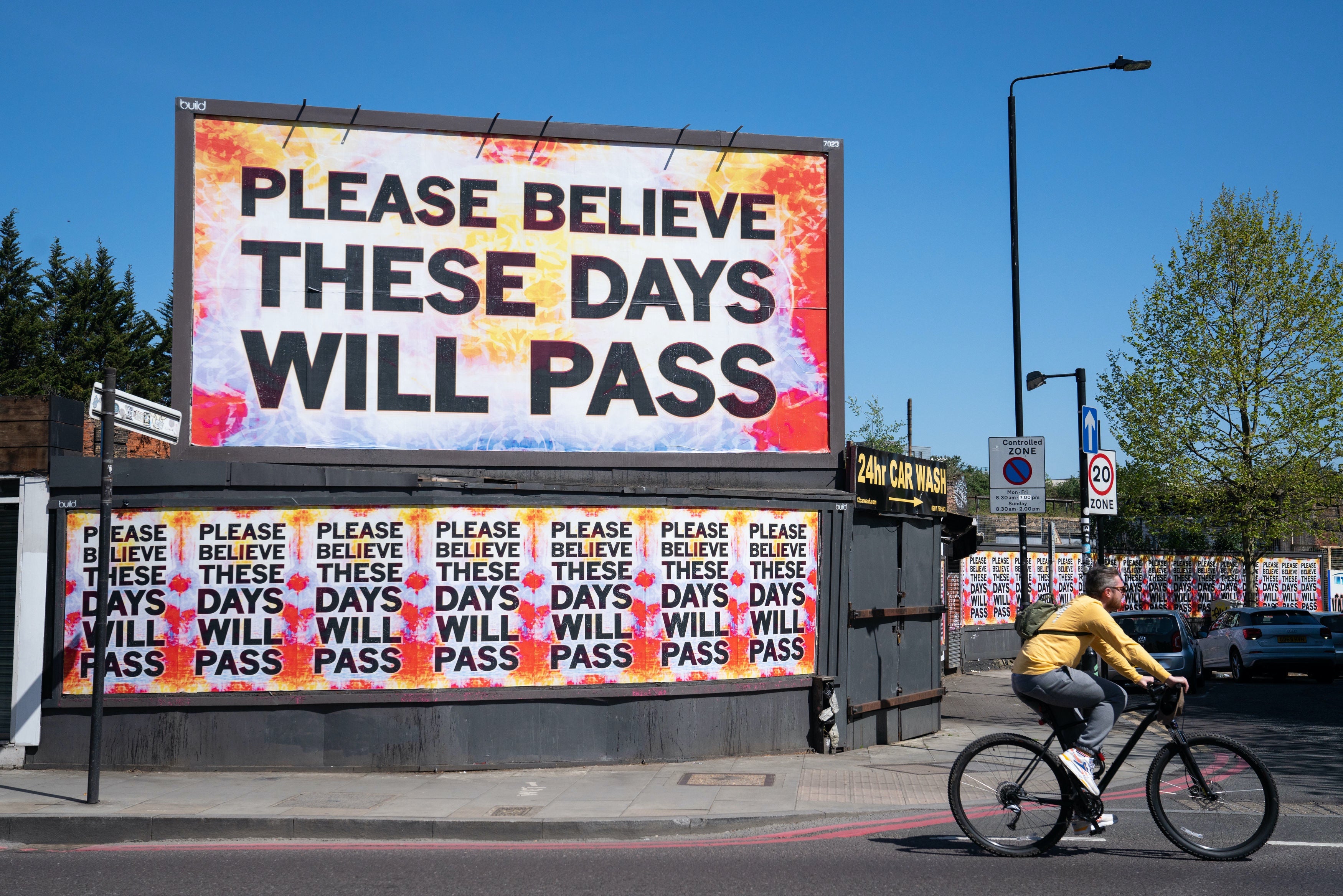Back to normal in 2021? Why the Covid vaccine could create a better society than before
Experts tell Adam Forrest about the possibilities for an exciting recovery in the year ahead


Your support helps us to tell the story
From reproductive rights to climate change to Big Tech, The Independent is on the ground when the story is developing. Whether it's investigating the financials of Elon Musk's pro-Trump PAC or producing our latest documentary, 'The A Word', which shines a light on the American women fighting for reproductive rights, we know how important it is to parse out the facts from the messaging.
At such a critical moment in US history, we need reporters on the ground. Your donation allows us to keep sending journalists to speak to both sides of the story.
The Independent is trusted by Americans across the entire political spectrum. And unlike many other quality news outlets, we choose not to lock Americans out of our reporting and analysis with paywalls. We believe quality journalism should be available to everyone, paid for by those who can afford it.
Your support makes all the difference.One of Britain’s leading scientists prompted yelps of joy and sighs of relief earlier this week when he said the Covid vaccine developed by Pfizer would mean life returning to normal by the spring.
The usually-restrained BBC host Sarah Montague responded with delight when Professor Sir John Bell said he was “confident” normalcy was on the way – throwing her hands up in the air and breaking into a huge smile.
Many people are already preparing their summer 2021 blow-out parties, sharing celebration memes and plans for gigs, festivals and global travel on social media.
So are we all getting a bit too carried away? Can we get back to normal after such an overwhelming amount of change? And if the old normal isn’t possible, what might a new normal look like when restrictions are lifted?
The Independent asked immunologists, political scientists, philosophers and behavioural experts what 2021 has in store for us – and whether we might dare to dream of an even better society than before.
Paul Hunter, professor in medicine at the University of East Anglia, is feeling optimistic about how things will pan out in the first half of next year – although he urges people to be patient. He doesn’t think mass vaccination will begin to make a “dramatic impact” on the epidemic in the UK until March and April.
“I don’t think everyone who wants or needs the vaccine will get it in the first three or four months of next year, so they will be some need for some kind of restrictions throughout the spring and possibly longer,” he explains.
“The virus won’t have disappeared. There may be some level of social distancing, perhaps encouraging people to wear face coverings at indoor events. But certainly by the summer things will be a lot easier. I suspect travel will take off again in the summer. It may be that in some countries there will be a requirement to show a vaccination certificate.”
One of the biggest challenges will be getting people to follow remaining public health rules and guidance, if transmission rates come down as expected in the spring. Dr Jennifer Cole, a biological anthropologist at Royal Holloway, says young people will be particularly keen to throw off the shackles of social distancing as soon as possible.
“Older people tend to have coped quite well this year because they know life doesn’t go according to plan, they know strange things come along to change history,” she says.
“For people in their 20s, their active social life has been badly hit. It’s easy to make light of giving up on parties – but they’ve been struggling to cope in terms of their mental health. So the impulse to jump back into life again next summer is completely understandable.”
She adds: “I’ve seen things about music festivals returning but doing things differently – so if everybody has to wear masks in the mosh-pit, is it going to be fun? It might be difficult for people to remain patient, but the message may have to be, ‘We’re getting there’.”
Some experts think the vaccine will allow immunity “passports” – certificates or even special wristbands – to be used at concerts and sporting events.
However, Eleanor Riley, a professor of immunology and infectious disease at the University of Edinburgh, thinks that we may not even need to immunise people under the age of 50 for “something not far off normality” by the summer of 2021.
“People who are young and healthy should not be expecting to be offered the vaccine in 2021. Setting up a system to vaccinate all younger people who are low risk – I’m not sure I see that happening,” she says.
What about the return to the office? There will be a big push to revive the urban economy and repopulate some of our ghostly-quiet city centres. Yet many companies have discovered just how efficient – and potentially cheaper – home-working can be.
“There’s a chance to do things differently, and in some ways to do things better,” says Dr Cole. “Many people have found they prefer working at home. And nobody wants to go back to getting packed in like sardines on public transport. So there is a real possibility of readjusting society in a way that’s more flexible.”
Philosopher Nigel Warburton, co-host of the Philosophy Bites podcast, thinks many of us have developed a new appreciation for the great outdoors, as well as the nooks and crannies of our own neighbourhoods – an interest not likely to disappear even if we have to start commuting more often.
“A lot of people have really connected again with nature, with the parks and green spaces around them,” he says. “Now that we’ve had more fresh air, with the drop-off in traffic and air travel, I think many people will be much more acutely aware of the environment.”
Introverts may not be looking forward to all the dates piling up in 2021’s social calendar. Yet Warburton thinks all of us – wallflowers and party animals – will now cherish the time we choose to spend with others. “Zoom and Skype have been such an inadequate kind of interaction. I think people will value real interactions more highly – they will make them count a bit more.”
The author adds: “The pandemic has been a big reminder of our mortality. It could motivate some people to take the seize-the-day approach and go wild. But whatever you want to do, it’s an opportunity to reflect on what’s really important to you.”
The German philosopher Markus Gabriel believes we have the chance to become a more “moral” society as we emerge from the pandemic; a society much more interested in equality and sacrifice for the greater good. “We know can do the right thing. We did it. Even at incredibly high economic cost, we saved lots of lives,” he says.
If this vision of a brighter future appears a tad rose-tinted, pessimists may wish to worry about how the virus could further harden attitudes on immigration. Lene Aarøe, a political scientist at Aarhus University in Denmark, has found fear of disease can influence views on arrivals from other countries – or any group perceived as outsiders.
“At an unconscious level some people can mistake or misinterpret ethnic differences as an indication of potential disease spread, and therefore respond with fear,” she says. “So one potentially negative consequence of the pandemic is a rise in scepticism towards immigration.”
Yet Donald Trump’s recent defeat – despite his efforts to blame the catastrophic US death toll on the “Chinese virus” – suggests politicians on the right don’t automatically stand to gain from the pandemic. Support for right-wing populists has fallen across much of Europe in recent months, in part because they’ve tried to downplay the health risks.
“In Denmark too we haven’t seen the rise in socially-conservative parties we would have expected,” says Aarøe. “It’s interesting. It’s complex. Things are developing in ways we couldn’t have predicted.”
The pandemic has taught us to look at almost everything differently: our politicians, our priorities and our daily routines. However painful this year has been, however strong the impulse to press the reset button, the recovery is an ideal chance to ask if there are better ways to live.



Join our commenting forum
Join thought-provoking conversations, follow other Independent readers and see their replies
0Comments